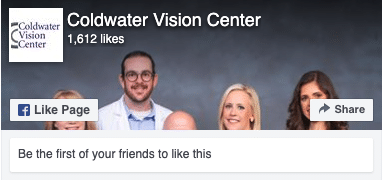Just like your heart, lungs, and brain, the human eyes are a bodily organ. Also like other organs, you have to be attentive to your eye health over the years, but not only will this keep your eyes healthy, it will also protect your visual capabilities. At Coldwater Vision Center in Coldwater, MS, we offer a full lineup of eye care services, including the comprehensive eye exam. Here is a look at what you need to know about these in-depth checkups for your eyes and vision.
Why Comprehensive Eye Exams Are Important
Comprehensive eye exams are important because these assessments give the eye doctor the opportunity to assess the working components of the eye and test your vision. People tend to put off eye exams even though they know they need one periodically, but doing so can lead to missing pertinent pieces of information about your eyes and your overall health. Some of the most worrisome eye conditions and diseases are progressive, which means they get worse with time, especially without treatment. Not to mention, seeing the world around you as clearly as possible is an important part of how you live your everyday life, whether you are driving a car, reading a book, or otherwise.
Tests Done During a Comprehensive Eye Exam
During a comprehensive eye exam, the optometrist will perform a series of different tests. Each of these tests has its own purpose in regard to examining your visual health. Below are a few of the tests that may be performed during your visit.
Retinoscopy and Refraction
Retinoscopy is what you likely associate with an eye exam. During this test, the doctor will be looking at how well you can visually see charts and objects from varied distances. This test is used to determine if you need glasses or if the glasses you are currently wearing are helping you as they should. Refraction involves placing a series of different lenses in front of your eyes to determine precisely which lenses help you see more clearly.
Tonometry (Glaucoma Testing)
Tonometry is specifically done to test pressure on the optical nerve, which can be an issue in the eyes of people who have glaucoma. These tests can be performed in a few different ways. One method involves using a small puff of air against your eye and then measuring the reaction of the optic nerve. An applanation tonometer can also be used to measure optical nerve pressure after applying a yellow eye drop to the eye.
Pupil Dilation Testing
Pupil dilation affects how well your eye perceives images because the pupil directly controls how much light makes its way into the back of the eye. The eye doctor will likely use special eye drops to force the pupils to dilate, at which time they will use special equipment to get a closer look at the back of the eye.
Common Patient FAQs
When should you have an eye exam?
Children should have their first eye exam when they are six months of age, a second exam at the age of three, and then exams every one to two years throughout their school years. Adults should have their eyes checked every one to two years. If a child or adult wears glasses or has specific vision or eye health concerns, the optometrist may recommend more frequent eye exams.
How should you prepare for a comprehensive eye exam?
Make sure you bring your glasses or current prescription contacts with you to your appointment. You will also be asked about your current medications, so it is best if you have a list of those with you. If you normally ear anything like an eyebrow piercing, it may get in the way during your exam, so it should be removed, and avoid wearing an excessive amount of eye makeup. The eye doctor will be putting drops in your eyes during certain tests, which can cause your eye makeup to run.
What will you learn during a comprehensive eye exam?
Once all of the tests are complete, the eye doctor will go over their concerns about your eye health and vision. You will find out if you have vision issues that can be corrected with prescription glasses, you will find out about any obvious eye health concerns, and you may even learn something new about your health. It is not uncommon for an eye doctor to be the first to recognize signs of issues like high blood pressure or diabetes because some health conditions show up as damage to the eyes.
Contact Us About Eye Exams in Coldwater, MS
Regular eye exams are an important part of your well-rounded healthcare plan. If you know it is time for your vision exam or if you have been experiencing issues with your vision, reach out to us at the Coldwater Vision Center in Coldwater, MS to schedule an appointment. We offer comprehensive eye exams, glasses, and more for the entire family.

